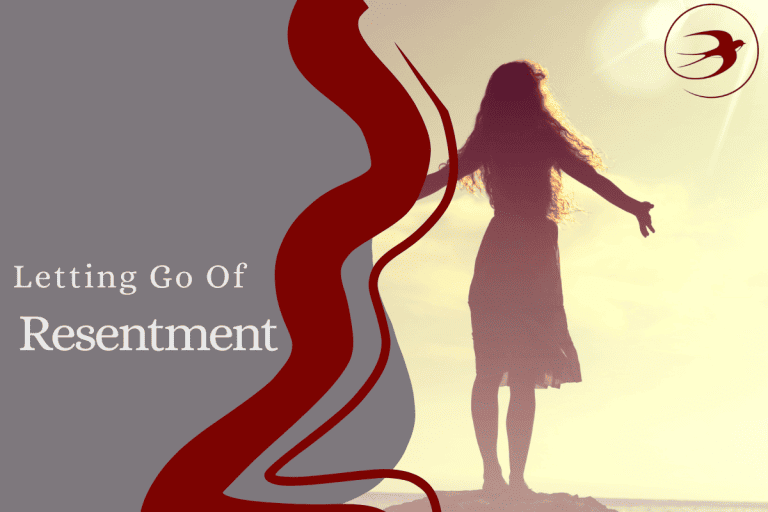Holding onto anger or hurt can feel like carrying a heavy weight. Maybe someone betrayed your trust, or you’ve been replaying the same painful memory over and over. Forgiveness might sound like a nice idea, but when you’ve been deeply hurt, it can feel impossible. And if you’ve been carrying the pain for a long time, it might be hard to imagine life without it.
Therapy for forgiveness helps you gently work through that pain. It gives you a safe place to talk, feel, and slowly let go of the hurt that’s been holding you back. In therapy, you can explore what happened, how it made you feel, and what you need to heal. It’s not about pretending the pain didn’t happen; it’s about finding peace and hope again, even after deep wounds.
Forgiveness isn’t always quick or easy, and it doesn’t mean you’re saying what happened was okay. But with support, you can learn how to let go of the anger, find freedom from bitterness, and open your heart again. You don’t have to do it alone; healing is possible, and therapy can help you take that first step.
What Is Therapy for Forgiveness?
Therapy for forgiveness is a healing process that helps you work through anger, hurt, or betrayal in a safe and gentle way. It’s not about forcing you to forgive or pretending the pain didn’t happen. Instead, it’s about giving you space to talk honestly, understand your feelings, and start letting go of the things that weigh you down. Many people come to therapy feeling stuck, unsure how to move forward, and that’s okay.
A therapist helps guide you through the layers of your pain. You might talk about people who hurt you, things you regret, or the thoughts that keep you up at night. Therapy for forgiveness gives you tools to handle those thoughts and feelings without letting them control you. You’ll learn how to set healthy boundaries, calm your mind, and rebuild trust, especially trust in yourself and your ability to heal.
You don’t need to have everything figured out to begin. If you’ve ever thought, “I want to move on, but I don’t know how,” that’s a good sign that therapy for forgiveness might help. Whether you’re struggling to forgive someone else or yourself, this kind of therapy can bring real peace. Healing doesn’t mean forgetting; it means being free to live without pain, controlling your story.
What Is Therapy for Forgiveness?
Therapy for forgiveness is a healing process that helps you work through anger, hurt, or betrayal in a safe and gentle way. It’s not about forcing forgiveness or pretending the pain didn’t happen. Instead, it’s about giving you space to talk honestly, understand your feelings, and slowly let go of what’s keeping you stuck. Many people come to therapy feeling overwhelmed and unsure how to move forward, and that’s okay.
Different kinds of therapy can help with forgiveness, including Cognitive Behavioral Therapy (CBT), EMDR (Eye Movement Desensitization and Reprocessing), and Christian counseling. These approaches help you explore the root of your pain, process your emotions, and shift your thinking. Whether you’re struggling to forgive someone who hurt you, or trying to forgive yourself, your therapist will help you find the right path toward healing and peace.
You don’t need to have all the answers to start. If you’ve ever thought, “I want to forgive, but I don’t know how,” that’s a strong reason to consider therapy. Therapy for forgiveness can help you move through the pain with support and clarity. Forgiveness doesn’t mean forgetting; it means being free to live without your past controlling your present.
Why Is Forgiveness So Difficult?
Forgiving someone isn’t as simple as saying the words “I forgive you.” When you’ve been hurt deeply, the emotional wounds can run far beneath the surface. Betrayal, abuse, or broken trust often leave scars that affect the way you think, feel, and relate to others. It’s normal to hold on to anger or resentment as a way to protect yourself from further pain.
Many people also struggle with forgiveness because the pain runs deep. If someone broke your trust, betrayed you, or caused lasting harm, your heart naturally puts up walls. Some people were hurt in childhood and never had a chance to speak up or feel safe. Others may feel stuck in a loop of anger, guilt, or even shame—especially when they’re trying to forgive themselves.
Therapy gives you a place to explore those feelings without pressure. With help from CBT, EMDR, or Christian counseling, you can gently process your story and begin to shift how you carry it. You don’t have to rush. Forgiveness takes time, and it’s okay if you’re not there yet. The important thing is that you’re open to healing, and that’s a powerful first step.
How Unforgiveness Affects Mental and Spiritual Health
Holding onto anger, bitterness, or guilt can slowly wear you down. You might feel tense all the time, have trouble sleeping, or notice that your thoughts keep going back to the hurt. Over time, unforgiveness can lead to stress, anxiety, sadness, or even physical pain. It’s like carrying a heavy backpack you were never meant to carry. Your mind and body stay on edge, trying to protect you from getting hurt again.
Unforgiveness can also affect your spiritual health. You might feel far from God, question your worth, or wonder why healing feels so out of reach. In Christian counseling, we talk about how forgiveness can open your heart again, not just to others, but to yourself and to God’s love. Letting go doesn’t mean the pain didn’t matter. It means you’re ready to live without it stealing your peace. Therapy helps you move toward that freedom, one step at a time.
The Role of a Therapist in the Forgiveness Process
When you’re carrying pain, it can feel scary to even talk about forgiveness. A therapist’s role is to walk beside you, not to push or judge. In therapy for forgiveness, you’ll have a safe space to share your story and sort through your emotions. Your therapist helps you make sense of the hurt, teaches you coping tools, and guides you as you take small steps toward letting go of the weight you’ve been carrying.
Therapy can also help you learn the difference between forgiveness and reconciliation. For example, forgiving a person who hurt you doesn’t always mean you need to let them back into your life. With the support of approaches like CBT, EMDR, or Christian counseling, you can release the anger while still keeping healthy boundaries. A therapist’s role is to support your healing and help you rebuild hope, so forgiveness feels less like a burden and more like freedom.
Steps in Therapy for Forgiveness
Starting the journey of forgiveness can feel overwhelming, but breaking it into smaller steps makes it more manageable. In therapy for forgiveness, a therapist walks with you through each step at your own pace. Here are some of the key parts of the process:

- Acknowledging the Pain
Healing begins by naming what happened and how it affected you. In therapy, you’re given the space to be honest about your story without judgment. This step helps you recognize your pain instead of pushing it down. - Processing Emotions
You may feel anger, sadness, guilt, or even shame. Approaches like CBT and EMDR can help you work through these emotions in a healthy way. Processing feelings allows you to release the burden instead of carrying it silently. - Shifting the Narrative
Forgiveness doesn’t erase the past, but therapy helps you reframe it. Instead of seeing yourself only as a victim, you learn to see your strength, resilience, and ability to heal. Christian counseling can also bring in God’s truth to remind you of your worth and value. - Practicing Release
This step is about letting go—not for the person who hurt you, but for your own peace. It might mean journaling, prayer, or guided exercises with your therapist. Release is not a one-time event but a process that grows with practice. - Rebuilding Hope
Forgiveness opens the door to hope and a new way of living. You begin to feel lighter, more at peace, and even more open to relationships. With ongoing support, you can move forward knowing that the pain no longer controls your story.
Christian Counseling and Forgiveness: A Faith-Based Perspective
In Christian counseling, forgiveness is seen not only as a healing tool but also as a spiritual practice. The Bible reminds us in Colossians 3:13 to “forgive as the Lord forgave you,” showing that forgiveness is deeply tied to God’s love and grace. When you bring faith into therapy, you’re reminded that forgiveness doesn’t erase the hurt, but it does free your heart to receive peace, joy, and connection with God again. For many, prayer, scripture, and spiritual reflection work hand in hand with therapies like CBT or EMDR, helping to process pain while staying rooted in hope.
This perspective also helps with the hardest part of forgiveness, trusting that you don’t have to carry the burden alone. Through Christian counseling, you’re invited to let God walk with you through the pain and guide you toward healing. Forgiveness becomes less about doing it in your own strength and more about allowing God to give you the strength to release what weighs you down. With time, you learn that forgiveness is not just a gift you give others, but also a gift of freedom you give yourself.
Benefits of Forgiveness in Therapy
One of the biggest benefits of therapy for forgiveness is the emotional release that comes with letting go of anger and resentment. Many people describe it as feeling “lighter,” like a weight has been lifted off their shoulders. As you release those heavy emotions, you may notice less stress, fewer sleepless nights, and even more energy for the things that matter most. Therapy helps you create space for healing, joy, and new beginnings.
Forgiveness can also improve your relationships, both with others and with yourself. When you’re not holding onto bitterness, it’s easier to trust, connect, and build healthier bonds. Spiritually, forgiveness can open the door to deeper peace and clarity, reminding you that you’re not defined by your pain but by your ability to heal. Imagine being able to look back on the past without feeling stuck in it. That’s what forgiveness offers: freedom, hope, and a chance to move forward with a heart that feels whole again.
Is Therapy for Forgiveness Right for You?
You may wonder if therapy for forgiveness is something you truly need. Ask yourself: Am I still carrying pain, anger, or guilt that I can’t let go of? If you often replay past hurts, feel stuck in resentment, or struggle to forgive yourself, therapy for forgiveness can help. It gives you a safe place to share your story, understand your feelings, and heal step by step.
Therapy for forgiveness is helpful when the burden affects your daily life, relationships, or faith. Maybe you avoid certain people or places, or you feel far from God because the hurt feels too heavy. In therapy, you’ll learn gentle tools (like CBT, EMDR, and Christian counseling) to release that weight with care. If you’ve thought, “I want to heal, but I don’t know how,” you don’t have to carry this alone—help is available, and hope is possible.
Final Thoughts
Forgiveness is not something that happens overnight. It’s a journey, sometimes slow, sometimes hard, but always worth it. Therapy for forgiveness gives you the guidance and support you need to take that journey at your own pace. With tools like CBT, EMDR, and Christian counseling, you can learn to release the pain, find peace, and restore hope in your life.
Remember, forgiveness doesn’t mean forgetting or excusing what happened. It means choosing freedom instead of holding onto anger. Each step you take, no matter how small, moves you closer to healing. You don’t have to walk this path alone, support is here, and a new chapter of peace and hope is waiting for you.
Blessings,






